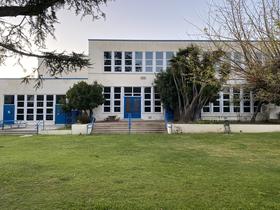Should Latin be Taught?
Does a dead language have any place in a 21st-century curriculum? Is it useful? Is it relevant? Does it have value as an enrichment to the core curriculum? I think it does, and for the following reasons.
1. Latin offers young people a glimpse into the life and times of the ancient Romans.
Yes, they can read about ancient Rome and watch videos. They can learn about the expansion of the Roman Empire under Julius Caesar. All that information is readily available. But it is filtered information. The whole point of learning a language is to be able to read source materials. I don't want somebody telling me what Julius Caesar said. I want to read it for myself. I want to understand what Caesar said, why he said it, how he said it - the works.
With that assumption in mind, it makes sense to allow students to experience the language by learning how to speak it. Perhaps Latin may be a dead language because it is no longer the lingua franca of commerce and world affairs. On the other hand, Latin is a beautiful-sounding language that will delight young listeners.
I will disclaim that I learned Latin back in the 50s and 60s when it was taught in the rather old-fashioned way languages were taught back then. You learned endless conjugations and declensions. You struggled with Latin's nuanced sense of tense. Et cetera. It would have been rather dry and dull had it not been for a very gifted teacher. (Isn't that usually the case?) Jack Boyer, a diminutive man with sparkling blue eyes, a rapier wit, and a legion of bowties, made anything in Latin exciting and fascinating for me and the rest of my classmates. Indeed, back then in Westmount High in Montreal, we were streamed as the Latin class or the Science class. Latin was the language you needed to master if you were to study medicine or law in university.
Latin teaching in the 21st century has benefited from reams of scholarship and some well-crafted Latin courses. I learned this first hand when I actually taught Latin for two and a half years when we lived in Nassau, Bahamas, back in the 90s. Combine a well-thought-out textbook with a teacher passionate about his subject, and it's hard to go wrong. Technology further enriches the teaching of Latin. Incidentally, the school where I was asked to teach Latin had never offered Latin before I appeared on the scene. You can imagine the comments during the parents' meeting at which it was announced that students in grades 6 through 9 would now take Latin. Most parents were quite convinced that their children would dislike the subject intensely. But they did give us a chance. Their fears proved unfounded. Within a few months, Latin was the most popular academic subject we offered.
Watching my students discover that the ancient Romans had the same basic needs and wants as they did prompted all sorts of fascinating discussions. They shared a love of good food, being entertained, being nurtured by a loving set of parents, developing a sense of civic responsibility, and more with their 'new' ancient friends. They had made a personal connection with that monumental ancient civilization. They learned, as Jean-Baptiste Alphonse Karr put it so succinctly, that "the more things change, the more they stay the same."
Here's a short video that illustrates one of the excellent new Latin courses available.
2. Latin exercises that vastly under-utilized organ, the brain.
Some say that Latin improves students' understanding of grammar and vocabulary. I prefer to think of it as just another mental exercise. Can the study of chemistry or physics exercise young minds just as well or perhaps even better? Of course. Anything that makes a young mind really work and really think is good. 21st-century students have too many electronic devices, which do so much of the drudge work for them. Everything's instant. Everything's entertaining. Everything is very passive. Studying an ancient language such as Latin forces young minds to focus and be disciplined. Learning to accomplish something worthwhile is a good thing.
3. Latin is an excellent enrichment to the core curriculum.
Latin approaches many of the ideas taught in other subject areas from the perspective of the ancient Romans. For example, the ancient Romans were world-class engineers and architects. The fact that the Pons Fabricius across the Tiber in modern Rome is still in use is solid proof of their building expertise. The Romans built over 50,000 miles of roads and used them much like we use our interstate highway system. Commerce, military forces, communications, and supplies flowed through this superb transportation network just as they do on our modern multi-lane super-highways. Many roads, bridges, aqueducts, and other public works are still in use today, attesting to the skill and genius of these ancient peoples.
21st-century students need to understand the history of past civilizations. They need to understand why they succeeded and why they failed. They need to know how a great leader could move a country forward while a not-so-great leader could swing the pendulum the other way. Understanding how and why that works will allow students to analyze and appreciate current events in their countries.
Conversational Latin? It's actually tons of fun, as this video shows.
I won't attempt to explain why Latin was taught so pedantically back when I was a schoolboy. But it was taught and had been taught that way for years. What has made Latin very teachable are the new courses designed specifically for 21st-century students. I don't remember Latin being particularly exciting back when Jack Boyer taught it. But I enjoyed it because Jack loved the language and imparted his love of it to his students very successfully. I do remember how much fun my own students had learning Latin because it was taught as a method of exploring that wonderful ancient Roman civilization. The language became their window into a world that existed thousands of years earlier in a far-off country. It helped them understand the culture and civilization which shaped and influenced the Western world for centuries to come.
Yes, Latin should be taught.
Questions? Contact us on Facebook or Instagram. @privateschoolreview
#privateschools #teachinglatin























